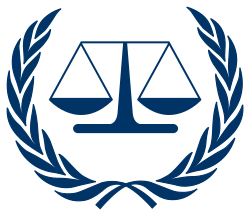 The seal of the International Criminal Court | |
| File no. | ICC-01/21 |
|---|---|
| Date opened | July 15, 2021 |
| Incident(s) | Philippine drug war |
| Crimes | Crimes against humanity: · Murder · Torture · Rape |
| Status of suspect | |
| Rodrigo Duterte | In custody; case in pre-trial stage |
| Website: https://www.icc-cpi.int/philippines | |
| ||
|---|---|---|
Personal 16th President of the Philippines Tenure
Post-presidency | ||
| ||
|---|---|---|
Incumbent Political campaigns
Policies Early political career
| ||
The International Criminal Court investigation in the Philippines, or the situation in the Republic of the Philippines, is an ongoing investigation by the International Criminal Court (ICC) into alleged crimes against humanity committed during the Philippine drug war.
Contents
- Background
- Davao Death Squad
- Philippine drug war
- History
- Arrest of Rodrigo Duterte
- Jurisdiction
- Investigation
- Court proceedings
- Pre-trial proceedings
- Notes
- Further readings
- References
- External links
The Philippines announced its intention to withdraw from the Rome Statute on March 14, 2018, about a month after the ICC launched a preliminary investigation into the situation in the country. The withdrawal was finalized a year later, on March 16, 2019. Since the Philippines is no longer a state party to the Rome Statute, the investigation will only cover the period when the treaty was in force in the country—between November 1, 2011, and March 16, 2019. The Supreme Court of the Philippines, in a 2021 ruling, commented on the withdrawal and stated that the Philippines still has an obligation to cooperate in the ICC proceedings.
On March 11, 2025, former president Rodrigo Duterte was arrested by the Philippine National Police and Interpol after a warrant was issued by the ICC.





